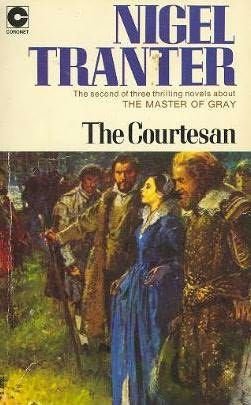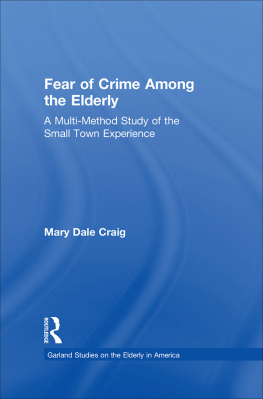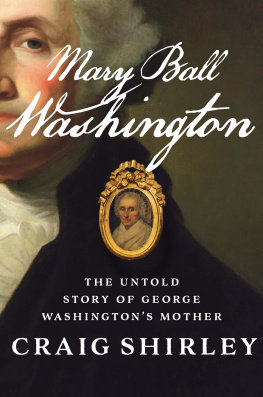Mary W. Craig - Tangled Web : Dancer, Courtesan, Spy.
Here you can read online Mary W. Craig - Tangled Web : Dancer, Courtesan, Spy. full text of the book (entire story) in english for free. Download pdf and epub, get meaning, cover and reviews about this ebook. City: Stroud, year: 2017, publisher: The History Press, genre: Non-fiction. Description of the work, (preface) as well as reviews are available. Best literature library LitArk.com created for fans of good reading and offers a wide selection of genres:
Romance novel
Science fiction
Adventure
Detective
Science
History
Home and family
Prose
Art
Politics
Computer
Non-fiction
Religion
Business
Children
Humor
Choose a favorite category and find really read worthwhile books. Enjoy immersion in the world of imagination, feel the emotions of the characters or learn something new for yourself, make an fascinating discovery.
- Book:Tangled Web : Dancer, Courtesan, Spy.
- Author:
- Publisher:The History Press
- Genre:
- Year:2017
- City:Stroud
- Rating:3 / 5
- Favourites:Add to favourites
- Your mark:
- 60
- 1
- 2
- 3
- 4
- 5
Tangled Web : Dancer, Courtesan, Spy.: summary, description and annotation
We offer to read an annotation, description, summary or preface (depends on what the author of the book "Tangled Web : Dancer, Courtesan, Spy." wrote himself). If you haven't found the necessary information about the book — write in the comments, we will try to find it.
Tangled Web : Dancer, Courtesan, Spy. — read online for free the complete book (whole text) full work
Below is the text of the book, divided by pages. System saving the place of the last page read, allows you to conveniently read the book "Tangled Web : Dancer, Courtesan, Spy." online for free, without having to search again every time where you left off. Put a bookmark, and you can go to the page where you finished reading at any time.
Font size:
Interval:
Bookmark:


Cover illustrations. Front: Mata Hari (Courtesy of Bibliothque nationale de France, colourisation by Klimbim).
First published in 2017
The History Press
The Mill, Brimscombe Port
Stroud, Gloucestershire, GL5 2QG
www.thehistorypress.co.uk
This ebook edition first published in 2017
All rights reserved
Mary W. Craig, 2017
The right of Mary W. Craig to be identified as the Author of this work has been asserted in accordance with the Copyright, Designs and Patents Act 1988.
This ebook is copyright material and must not be copied, reproduced, transferred, distributed, leased, licensed or publicly performed or used in any way except as specifically permitted in writing by the publishers, as allowed under the terms and conditions under which it was purchased or as strictly permitted by applicable copyright law. Any unauthorised distribution or use of this text may be a direct infringement of the authors and publishers rights, and those responsible may be liable in law accordingly.
EPUB ISBN 978 0 7509 8472 0
Original typesetting by The History Press
eBook converted by Geethik Technologies
M uch has been written about Mata Hari the exotic dancer and Great War spy, and there are many papers about her held at the Archives de Paris; The British Library, London; the Centraal Bureau voor Genealogie, The Hague; the Fries Museum, Leeuwarden; the Nationaal Archief, The Hague; the National Archives, London and the Service Historique de lArme de Terre, Vincennes. My grateful thanks must go to the staff at each of these institutions, who have generously given their time with unfailing professionalism.
Individuals I am indebted to include friends Eleanor Ball and Gordon Mulholland, and the editorial team at The History Press. On a personal note, I would like to thank Dorothy and George for all of their help, support and encouragement with this particular quest.
M argaretha Geertruida Zelle was born in the Netherlands in the quiet bourgeoisie town of Leeuwarden in 1876. Her early life was unremarkable and gave no indication that she would become anything other than a respectably married member of Dutch small-town society. Far from following this path, however, Margaretha married young and travelled halfway round the world to the Dutch East Indies, where she discovered the excitement and exoticism of Javanese dance. Her marriage was an unhappy one, marred by emotional and physical violence and finally the death of her young son. She returned to Europe, where she became embroiled in a bitter divorce settlement and ultimately had to give up custody of her daughter. Friendless and with no money, she turned to exotic dancing as a way to make a living Margaretha became Mata Hari. While this exoticism was all the rage at the time, Mata Hari was neither young nor particularly talented, and a dancing career, precarious for even the most talented, could not financially sustain her in the long-term. Mata Hari turned to the oldest profession in the world and found men who were willing to pay to spend time with her. Thus her story might have ended, but for the outbreak of the Great War.
The Great War was the end of the old order. Who knew what would follow? For a woman like Mata Hari, the Great War was both a threat and an opportunity. Would what followed the war welcome her or would the new order cast her aside? For a woman who was getting older in a new world where she might have few friends, this was a daunting prospect. But what of the opportunities? Whoever won the war would be dominant in Europe; should Mata Hari use her position as an international woman of some renown to help one country over another? In 1915, Mata Hari was recruited first as a German agent and then a French agent, and was finally approached to become a Russian agent. Where did her loyalties lie? For which country would she enter the dangerous world of espionage? Or was Mata Hari more calculating than that? Whatever country won the war, a government that owed Mata Hari for her endeavours as a spy would surely not abandon her. Loyal spy, or calculating mercenary, Mata Hari was arrested by the French in February 1917 and executed by firing squad on 15 October 1917 in Paris.
Mata Hari has a hold on the modern imagination in part because of the times through which she lived. Between the 1870s and 1918, Europe and its colonial possessions fell from certainty into chaos, from which there would be no return to the old order. In 1848, the year of revolutions, Europe had tottered on the brink of collapse. However, the various nation states had survived and a delicate balance of power was created between these countries. The Great Powers of Russia, Prussia, Austria, France and Great Britain maintained the peace across the continent. Treaties and alliances allowed trade to flourish and peace to be restored. This did not last, and the balance came under increasing pressure as many nation states, in their desire to achieve what they perceived to be their destiny, found themselves to be increasingly in conflict with their neighbours. The formation of the German nation alarmed their neighbour France. The expansionist policies of Russia in the East engendered conflict with Great Britain and the internal issues of nationalism unsettled Austria.
Many in the European nations were aware of but did not fully understand these rising political tensions or how to deal with them, and in their confusion clustered round their old societal certainties. The familiarity of social convention was a comfort in uncertain and confusing times. Moreover, etiquette and decorum, tradition and display became a mask to hide confusion and a method by which to determine friend or foe. The done thing was never questioned and never changed, and was even exported to the European colonies in Asia and Africa.
The Netherlands was, in the 1890s, a wealthy trading country with vast colonies in the Far East. The United Dutch East India Company (Vereenigde Oostindische Compagnie VOC) was a chartered company that had been established in 1602, when the States General of the Netherlands had granted it a twenty-one-year monopoly to carry out trade in Asia. By the end of the eighteenth century, the company was rife with corruption and severely in debt. As a result, in 1799, the government in The Hague revoked the companys charter and took over its debts and possessions. The government had gained control of a company that had possessed quasi-governmental powers, including the ability to negotiate treaties, strike its own coins and establish colonies. As a result, the Netherlands had inherited a vast colony in Asia with a huge financial potential in spices and silks. During the nineteenth century, the colonies in the East provided the Netherlands with a large income, a career path for many within the colonial service and a place amongst the top European trading nations. The eastern colonies of the Netherlands were also a place where those European social certainties were as embedded as in the streets of The Hague or the town of Leeuwarden. Those certainties continued and by the start of the twentieth century, the Netherlands was a prosperous, assured nation, confident in its place in the world and settled in its bourgeois traditions.
The Netherlands was not the only country with colonies. Germany, a country that had only been formed in 1871, viewed colonial acquisitions as a true indication of having achieved nationhood. Initially, Bismarck, the Chancellor, had been wary of colonial acquisitions, viewing them as expensive burdens that the young nation could do without, but in the mid-1880s he changed his mind. In the 1850s and 1860s, several German companies had established trading bases in West Africa, East Africa, the Samoan Islands and New Guinea. These soon developed into German protectorates. Germanys location in the centre of Europe, and thus potentially surrounded by hostile neighbours, drove much of the political call for colonies, despite the drain on the countrys finances. A new nation in comparison with the Great Powers in Europe, Germany strove to prove its worth and its place in the sun. Frequently thwarted in its attempts at colonial expansion by Britain and France, hampered by France and Russia on its continental borders and constrained by its ambivalent relations with Austria-Hungary, by the beginning of the twentieth century the drive to be the equal of the Great Powers was uppermost in all aspects of German politics and philosophy. Many Germans sought to reaffirm and elevate the old German customs and traditions. Germanic myths took an ever-increasing place within society, and cultural pride grew in
Next pageFont size:
Interval:
Bookmark:
Similar books «Tangled Web : Dancer, Courtesan, Spy.»
Look at similar books to Tangled Web : Dancer, Courtesan, Spy.. We have selected literature similar in name and meaning in the hope of providing readers with more options to find new, interesting, not yet read works.
Discussion, reviews of the book Tangled Web : Dancer, Courtesan, Spy. and just readers' own opinions. Leave your comments, write what you think about the work, its meaning or the main characters. Specify what exactly you liked and what you didn't like, and why you think so.











![Terence Craig and Mary E. Ludloff - Privacy and big data: [the players, regulators, and stakeholders]](/uploads/posts/book/229294/thumbs/terence-craig-and-mary-e-ludloff-privacy-and-big.jpg)

